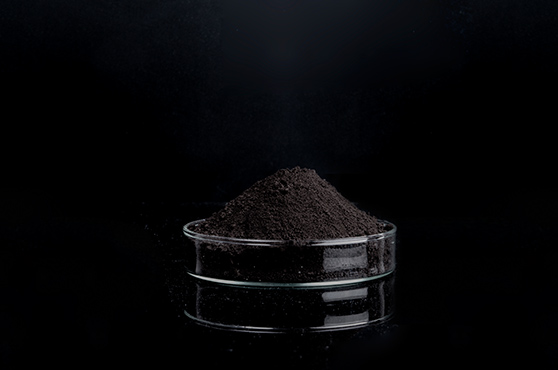A small amount of fluorine converts white graphene from an insulator into a magnetic wide band gap semiconductor. Scientists at Rice University say this can make unique materials suitable for electronic devices in extreme environments. Monomer boron
Scientists at Rice University say this can make unique materials suitable for electronic devices in extreme environments. A proof-of-concept paper by Rice University researchers confirmed the method of transforming two-dimensional hexagonal boron nitride (h-BN), or white graphene, from an insulator to a semiconductor. They say that magnetism is an unexpected bonus.

Because the atomically thin material is a special heat conductor, researchers believe it may be useful for electronic products in high-temperature applications, and may even be a magnetic storage device. Rice University scientist Pulickel Ajayan said: “h-BN is a stable insulator that is very useful commercially. It can be used in protective coatings and even in cosmetics because it absorbs ultraviolet light. Researchers have tried to modify its electronic structure. A lot of effort has been put into it, but we don’t think it will become a semiconductor or a magnetic material. So this study is very different. No one has seen this behavior in h-BN.” The researchers found that adding fluorine to h-BN , And introduce defects into the atomic matrix, thereby reducing the band gap and making it a semiconductor. The band gap determines the conductivity of the material.
Chandra Sekhar Tiwary, a postdoctoral researcher and co-author at Rice University, said: "We see that when about 5% of fluorine is added, the band gap shrinks. As fluorine continues to increase, the band gap becomes smaller, but only to a certain point. Controlling fluorine is what we need to deal with. We can get a range, but we have not yet achieved precise control. Because the material is atomically thin, the reduction or increase of one atom will bring considerable changes. In the next set of experiments, we They want to learn to adjust atoms precisely.” They confirmed that the tension imposed by the addition of fluorine atoms changes the "spins" of electrons in nitrogen atoms and affects their magnetic moments. These determine how atoms react like an invisible nanoscale compass. The magnetic field responds.
Sruthi Radhakrishnan, a graduate student and lead author at Rice University, said: “We see angular orientation rotation, which is very unusual for two-dimensional materials. Unlike alignment to form a ferromagnet or cancel each other, the spins are randomly tilted to make the plane The material stores the net magnetism randomly. These ferromagnetic or antiferromagnetic storages can exist in the same h-BN sample, which makes them "frustrated magnets" in competing fields.
The researchers say that their simple and scalable method has potential applications in other 2-D materials. "Making new materials through nano-engineering is exactly what our research group focuses on.

Telephone: 15940764666
Landline: 0417-3902111
Website: www.yklbhg.com
Address: No. 517, Xiangyang Chemical Industry Park, Laobian District, Yingkou City, Liaoning Province
Landline: 0417-3902444
Fax: 0417-3902118
Mail box: 758007001@qq.com
Address: No. 517, Xiangyang Chemical Industry Park, Laobian District, Yingkou City, Liaoning Province
